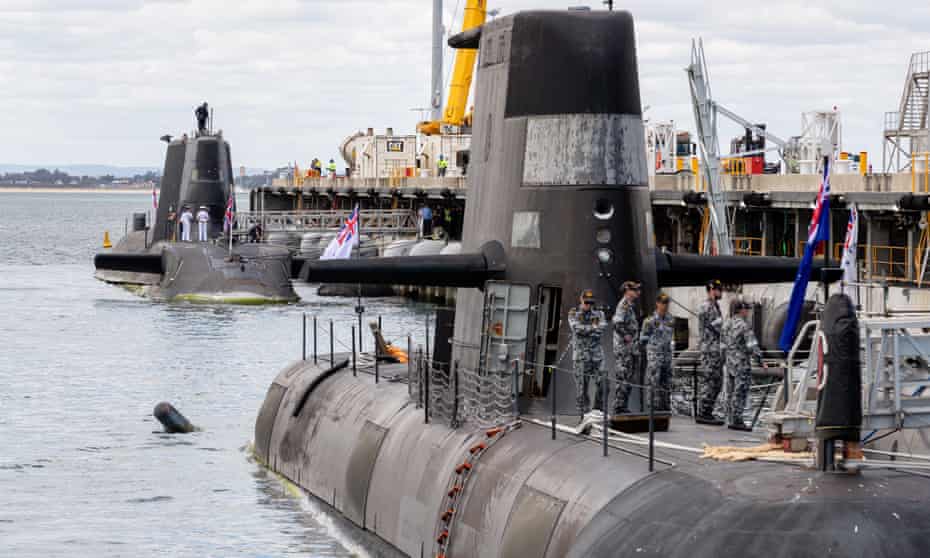
As China threat rises, can Aukus alliance recover from rancorous birth?
Posted: 23rd November 2021

Australia is keen on getting its first nuclear-powered submarines built and operating as quickly as possible. Photograph: Richard Wainwright/EPA
Questions mount about pact’s ultimate purpose and implications for other Asean countries

Patrick WintourDiplomatic editor
Tue 23 Nov 2021 01.47 GMT
It was initially seen as an audacious enlistment by Joe Biden of Australia into the 21st-century struggle against China, elevating the country in the process to a significant regional military power and finally giving substance to Global Britain and its tilt to the Indo-Pacific.
But since then the “ruckus” about Aukus, as Boris Johnson described it, has not stopped. If this was the start of a new “anti-hegemonic coalition” to balance China’s rise, it has not quite blown up on the launchpad, but nor has it taken off as smoothly as intended.
To read the full article, please click the link below:
https://www.theguardian.com/world/2021/nov/23/as-china-threat-rises-can-aukus-alliance-recover-from-...